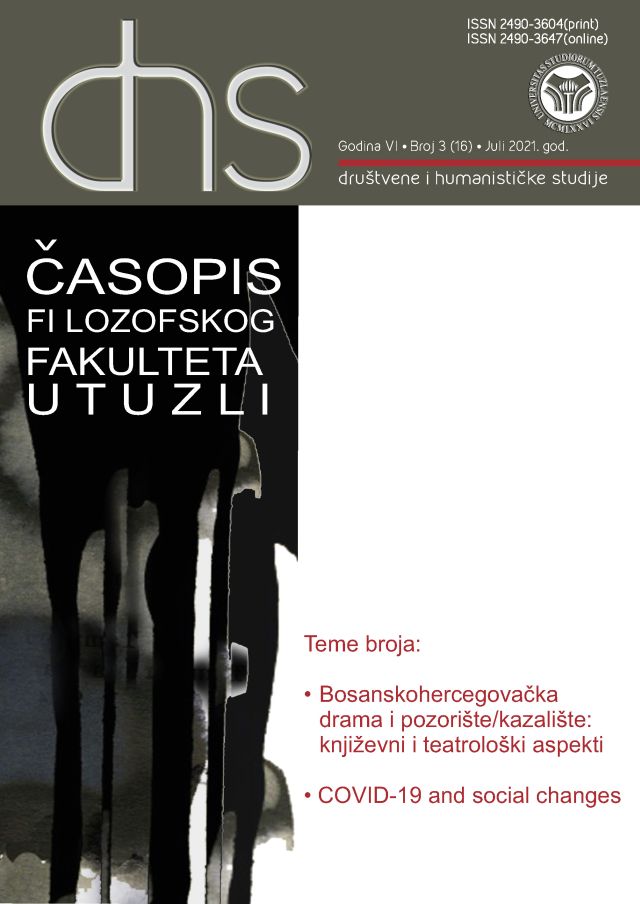Plesati u ratu. Percepcija pozorišta u ratnom Sarajevu (1992-1995): Pippo Delbono, Giorgio Strehler i Peter Schumann
Dancing in War. Perception of Theater in Wartime Sarajevo: Pippo Delbono, Giorgio Strehler and Peter Schumann
Author(s): Aida ČopraSubject(s): Theatre, Dance, Performing Arts, Fine Arts / Performing Arts, Transformation Period (1990 - 2010), Wars in Jugoslavia
Published by: Filozofski fakultet Univerziteta u Tuzli
Keywords: contemporary theater; Delbono; Strehler; Schumann; theater in war Sarajevo; epic theater; political theater;
Summary/Abstract: „When I went to Sarajevo, I met a boy“, Pippo Delbono tells us. They talked, and suddenly the boy told him, „I saw an entire city in anger. I’ve seen people become monsters“. And Delbono replied, „And I’ve seen people look at me like I’m a monster. And all the things that turn into monstrosity“. Traveling, for Delbono, is a life experience that turns into a theatrical one at the same time. In 1998, Delbono created a play called War. The story of the boy he meets during his trip to Sarajevo is an introduction to Delbono’s magical world of theater through which he expresses the need to present a life that is born from suffering, illness, war, but in which we still „dancing“. Danzare nella guerra, „dancing in the war“, for Delbono means to oppose the war to the beauty, joy, and poetics of the movement.In 1995, Strehler directed a play called Mother Courage of Sarajevo based on the text written by Bertolt Brecht. For Strehler, Mother Courage of Sarajevo is not just a play, it is a symbol, a political act that portrays war as a human failure. Strehler based his vision of theater on Brecht’s epic theater. One year before, in 1993, with his puppet troupe, The Bread and Puppet, Peter Schumann came to Sarajevo to provide his support.In the first place, we want to show how Delbono’s conception of theater and experience during his trip to Sarajevo intertwine with the primary goal of Sarajevo theater in those years, as „spiritual resistance“, „spiritual needs“, „call to heal wounded souls“, a „super theater“, as Izudin Bajrović calls him, in which theater and life were the same. Through Strehler’s theater, his relationship with Sarajevo, and the breaking of the „fourth wall“, we will talk about theater as research of those eternal human values, but also returning to humane theater. In the third place, through Schumann’s work, we will show how the external theatrical reality intertwines with the internal one as a feature of strong political engagement.
Journal: DHS-Društvene i humanističke studije: časopis Filozofskog fakulteta u Tuzli
- Issue Year: XVI/2021
- Issue No: 16
- Page Range: 81-94
- Page Count: 14
- Language: Bosnian

